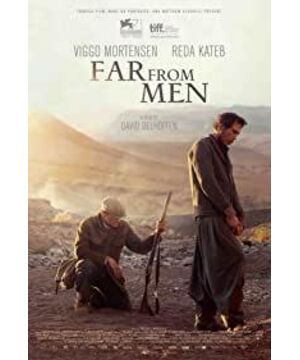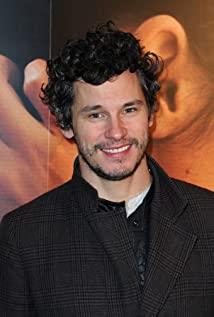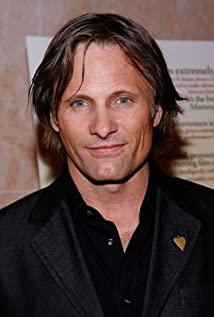The background is the era when the ethnic conflict in Algeria escalated into war in 1954. An Algerian rural teacher lived a simple and peaceful life. One day, the police brought a murderer (an Arab) to visit and asked him to take the prisoner to the border city to the authorities.
"For the French we are Arabs, but for the Arabs we are French."-The identity of Dalu, a teacher who was in the background of the war in Algeria in 1954, was embarrassing and contradictory. A former French major in World War II, he was a geography teacher at a small school hiding in the desolate mountains after he retired. In this poor soil and inaccessible place, the children’s strong thirst for knowledge and clear eyes are his pride. everything of. He taught the children the origin of civilization in class and knew the major rivers in Europe. However, he was accompanied by a lone clothesline on an open field, a flickering sunset and a lonely bonfire. If there is no one person's sudden visit, his life can continue as ordinary as it is.
Dalu was forced to accept something he didn't want to do in his heart-escorting a murderer to the border city of Tangit. The murderer's name was Muhammad, the eldest son of the family, who killed his cousin because of food shortages. Dalu's first reaction was: "I can't do this, I can't send someone to die." In the cramped hut, the resistance to this difficult problem was flowing silently.
The teacher Dalu left Muhammad for humanitarian considerations, let him stay in the same room with him, and prepare a bed for him. As night fell, Muhammad suddenly walked out of the door. Dalu held a pistol and lay on the window and looked around. At this time, he was still defensive against Muhammad. In the middle of the night, Muhammad was still not quiet, and he didn't know what he was talking about. His weird behavior awakened Dalu, and it turned out that Muhammad was ill. Dalu fed her medicine and put a towel on him. Mohammed was so grateful that he told Dalu about his life experience.
Where on earth should Muhammad be sent? Dalu didn't know what to do in his own heart. He was accustomed to living in this remote place alone, and suddenly such a young man came in, who was still a murderer, and the entanglement in his heart can be imagined. But even so, he did not quickly hand over Muhammad to the police or the military. Instead, he chose to embark on an escape journey with Muhammad who did not know where to lead.
They met several groups of militants one after another. In 1954, when the independence movement in Algeria was surging, the so-called military massacred the rebels. In troubled times, a person who managed to steal security can barely survive the day. A huge burden, the danger can be imagined.
There are several times in the film that the teacher Dalu wants to drive Muhammad away, but Muhammad is a poor man with nowhere to go, and he is a dead end wherever he goes. The humanity in his heart sprouted once again, and Dalu accompanied Muhammad on a difficult walk in the sandy Gobi. The rain was torrential, and they had nowhere to hide, so they had to return to their original residence. The two of them gathered around the bonfire and talked to themselves. Muhammad's motive for killing, why he died willingly if he didn't escape, because if he was killed by his cousin's brother, his brother was still young and he didn't want them to avenge himself.
A group of armed men on horseback came again, handed Dalu's guns, and took them by the hand with a rope to take them on the road. Fortunately, Dalu met his former comrades in the army. The comrades rescued them, but only if they could not run away casually, they actually took Dalu hostages. Daru and Mohammed hid in a cave with the troops. They woke up the next day but encountered a burst of intensive machine gun fire from the opposition forces. Daru and Mohammed evaded the bullet and escaped the bullets, and they finally regained their freedom.
Dalu and Muhammad did not communicate much. As a teacher, Dalu's eyes showed a light of wisdom, even though he did not look very refined and knowledgeable. As a married man, Dalu can also give some guidance to Muhammad who has not yet fallen in love in the choice of life path.
After they were released by the military, Dalu took Muhammad to the bar and found a female companion for Muhammad. After many years of living alone, Dalu buried his face deeply between the breasts of his female partner like a child when faced with the temptation of beauty. At this time, Dalu could no longer rekindle the passion in his body.
After all, two people fleeing together is not the best way to deal with it. When they broke up, Dalu said to Muhammad: "If you go to the desert, I will tell your cousin, I will hand you over to the police station. The police executed it so that there would be no more revenge. By doing so, you can at least survive. Don't look back, never, don't surrender." Mohammed was sent away, and Daru's teaching career here is also over.
Sometimes life will force you to make choices you don't want to make. This film adapted from Camus's "The Guest" shows the humanity in the predicament with its harsh image quality and reveals to us the huge absurdity of the world. What choice do we make when our personal interests and the interests of others are on the same balance? When conscience meets the law, how do we reflect on this dilemma?
View more about Far from Men reviews











